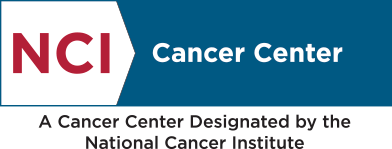Screening
Call or complete our questionnaire to see if you meet the criteria for a breast cancer screening.
Call us at
305-689-CARE (2273)
Or
Breast cancer is the second leading cause of cancer-related death of women in the U.S. But it doesn't have to be that way. Screening and early detection can find cancer early, when it's easier to treat.
Sylvester’s Breast Cancer Assessment Risk Evaluation (CARE) Clinic determines if you are at high risk of developing breast cancer and works with you to decrease those risks. If you are identified as high risk, our multi-disciplinary care team will work with you to create a plan with preventative and therapeutic interventions to decrease the risk of or to detect cancer as early as possible.
Personalized CARE for people at high-risk for breast cancer
Based on your needs, your CARE team provides referrals to:
- surgeons
- medical oncologists
- geneticists
- pathologists
- exercise physiologists
- nutritionists
- and more
Your breast CARE team offers expert guidance and services to protect against breast cancer. Together, we will develop a personalized plan for additional testing, screening or lifestyle changes. We will coordinate genetic testing and high-risk cancer surveillance for you and any member of your family who has genetic mutations. You will also have access to clinical trials designed to create new methods of preventing breast cancer.
We do all of this to help you make informed choices about your health.
Who is considered to be at high risk for breast cancer?
You’re considered to be at high risk if you have:
- Multiple first degree family members with breast cancer
- A gene mutation that is inherited from a parent (e.g. A BRCA 1 and 2, ATM, TP53)
- Had previous chest radiation therapy at a young age
- Family members diagnosed with breast cancer at a young age
If you meet this criteria, your doctor may recommend screening at a younger age or more frequently (or both) or suggest an additional screening method.
Let's reduce the risk of breast cancer, together.
Our comprehensive breast cancer prevention services ensure people at high risk of developing breast cancer receive screening and support to manage your risks. The experts at Sylvester specialize in:
Genetic testing and counseling
Genetic testing can tell you whether you've inherited a genetic change (mutation) to your genes, which significantly increases your risk of developing breast cancer. Our genetic counselors can educate you about genetic testing and help you decide whether testing is right for you. They can also talk to you about your results and your options.
Exercise physiology
According to the American Cancer Society, exercise can help lower your risk of many types of cancer, including breast, colorectal, and uterine cancers – up to 13 different types. Regular exercise helps you maintain a healthy weight, regulate hormone levels, boost your immune system, reduce swelling, and more. Our exercise experts can design an exercise program to help you get moving.
Acupuncture
If you feel anxious or worried about your elevated cancer risk, acupuncture may let you feel more at ease. Acupuncture is a traditional Chinese medicine approach that applies very thin needles to various points (acupoints) in the body. It’s been shown to enhance mental and physical well-being, including improving sleep and relieving stress and anxiety.
Nutrition counseling
A nutritious diet can help you reduce your cancer risk. Some foods, such as processed foods and red meats, can raise your cancer risk, while other foods like whole grains, vegetables, and high-fiber foods can enhance your health. Our registered dietitians offer personalized guidance to eat better, control your weight, and lower your cancer risk.
Risk-reduction surgery referrals
If you’re at very high risk of developing breast cancer, preventive surgery may be recommended. Surgery is a difficult decision, and we're here to help you understand all the risks and benefits. We help you understand genetic testing results and offer emotional support every step of the way. We make sure you know all your preventive options so that you can make an informed choice.
Chemoprevention
This preventive approach uses medicines to lower your breast cancer risk, such as tamoxifen, raloxifene, and other medicines, such as aromatese inhibitors. Your care team will talk to you about the possible side effects and risks of chemoprevention and help you decide if it's right for you.
